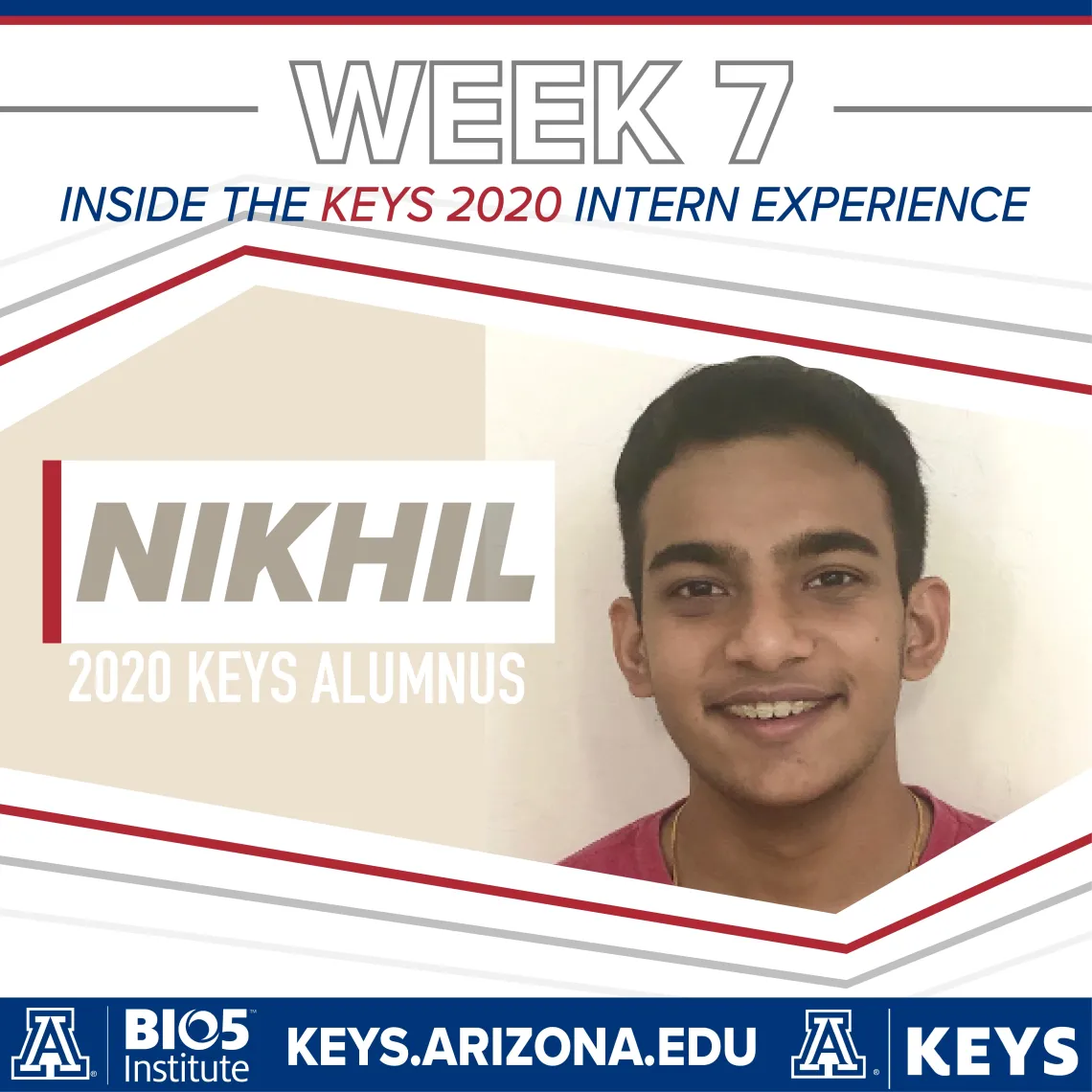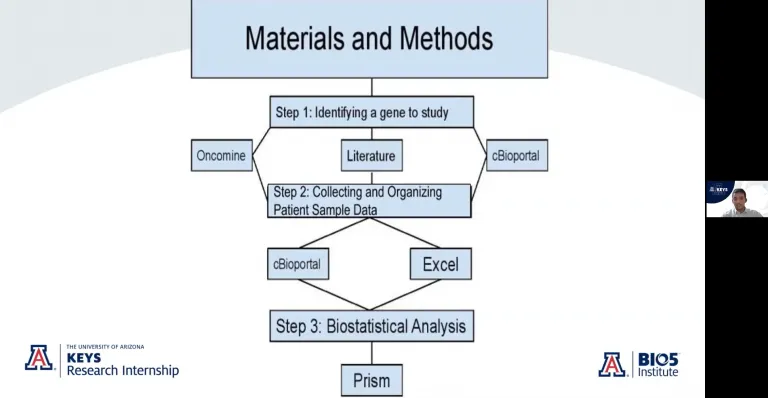Success of Online KEYS Program Gives Intern Hope for the Future

At the beginning of the summer, Nikhil (Nik) Mathur was amazed how quickly the Keeping Youth Engaged in Science (KEYS) team pivoted the traditionally in-person summer internship to an entirely remote experience amid the COVID-19 pandemic.
The aspiring physician fueled his desire to engage in human health-centered research this summer as an intern in the lab of Dr. Pascale Charest. Now having successfully completed a seven-week remote research opportunity, Nik is in awe of how much he accomplished with just a computer and remote interactions with his lab.
“This KEYS internship is a testament to show that it is possible to be productive remotely,” he said. “You can still conduct research and get a lot done, even if it is online.”
Investigating cancer metastasis
Cancer metastasis – the spread of cancer cells from the primary tumor to a distant site – is the main cause of cancer morbidity and mortality, and accounts for most cancer-related deaths. However, the underpinnings of cell migration that lead to cancer metastasis is still poorly understood. Under the direction of Dr. Charest, Nik sought to determine the relationship between ZDHHC11, a gene whose protein product modifies other proteins, and the mTORC2 complex, a protein complex known to promote cell growth and migration in cancer.
By using online databases such as Oncomine, Protein Atlas and cBioportal, Nik found that both ZDHHC11 and mTORC2 components were highly expressed in non-small cell lung cancer. After identifying this gene of interest, Nik then sought to determine the biostatistical relationship between the gene, the complex and cell migration, as measured by cancer staging. Nik collected and organized data from patient samples using Microsoft Excel and cBioportal, and then used Prism to perform statistical analyses.
Nik’s blue and white poster, entitled “ZDHHC11 and its correlation with mTORC2 controlled Metastasis in Non-Small Cell Lung Cancer,” featured one graph and two tables for each of these comparisons. Nik didn't find any significant correlations between the gene ZDHHC11, the mTORC2 complex and cancer staging, but he did uncover a relationship between the gene and another protein known to regulate the mTORC2 complex: AKT.
In terms of future directions, Nik would like to examine other related genes and proteins that might have a stronger correlation with the migration-promoting complex. Nik is also interested in understanding the relationship between ZDHHC11 and AKT. Ultimately, Nik desires to provide insight into the mechanisms of cancer metastasis to inform the development of new cancer therapies.
Hope for the future
While this year’s KEYS experience was not the hands-on internship he applied for, the success of the program has forever changed Nik's perspective on the effectiveness of remote learning. Throughout the summer, Nik was continually amazed by the support he received from his mentors. Now able to reflect on his research project, Nik can appreciate the amount of work that can be accomplished from behind a computer screen.
“To be honest, it was a different experience, but it was a necessary one to have. It really changed my perspective on online learning in general,” he said.
Nik and his sisters, Esha and Sonia, will begin their senior year of high school online. Though it isn’t an ideal way to end high school, Nik is confident he will be able to effectively learn and complete his schoolwork remotely because of his overwhelmingly positive experience with KEYS.
“If I can do KEYS online and come out successful, I can definitely go to school and take all my classes at home,” Nik said.


